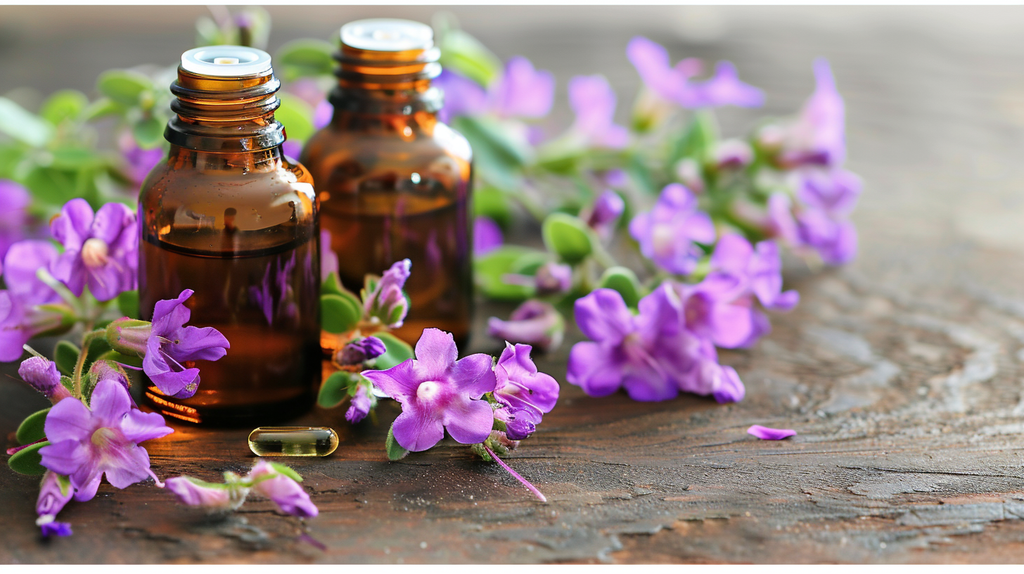Ever feel like your heart is racing for no reason? Or maybe your mind is constantly buzzing with worries, leaving you feeling on edge? These are just a few common symptoms of anxiety, a disorder that affects millions of people worldwide.
While anxiety can be debilitating, the good news is there are steps you can take to manage it.
As a qualified naturopath with extensive experience in helping people overcome anxiety, I've seen firsthand the power of natural approaches. This guide will explore 10 key lifestyle changes that can make a big difference in how you feel.
Key Takeaways
| What is anxiety? | A mental health disorder characterized by excessive worry and fear. |
|---|---|
| What are the symptoms of anxiety? | Racing heart, shortness of breath, sweating, fatigue, trouble concentrating, muscle tension, trouble sleeping, and panic attacks. |
| What are the types of anxiety disorders? | Generalized anxiety disorder, panic disorder, social anxiety disorder, and separation anxiety disorder. |
| What can cause anxiety? | Stress, genetics, medical conditions, and certain medications. |
| How can I manage anxiety? | Lifestyle changes, relaxation techniques, and professional help. |

Understanding Anxiety
Anxiety disorders are some of the most common mental health conditions in the world. They can manifest in a variety of ways, but generally involve feelings of excessive worry, fear, and apprehension.
These feelings can be triggered by specific situations (like social interactions for people with social anxiety disorder) or may seem to come out of the blue (like in generalized anxiety disorder).
The physical symptoms of anxiety can be very real and uncomfortable. They can include:
- Racing heart
- Shortness of breath
- Sweating
- Fatigue
- Trouble concentrating
- Muscle tension
- Trouble sleeping
- Panic attacks
Types of Anxiety Disorders
There are several different types of anxiety disorders, each with its own set of characteristics. Some of the most common include:
- Generalized Anxiety Disorder (GAD): Excessive worry and nervousness about everyday things.
- Panic Disorder: Sudden and intense episodes of fear or discomfort that come on quickly and reach their peak within minutes (panic attacks).
- Social Anxiety Disorder (SAD): Intense fear of social situations and being judged or scrutinized by others.
-
Separation Anxiety Disorder: Excessive anxiety and distress about being separated from a loved one.
Causes of Anxiety
The exact cause of anxiety disorders is not fully understood, but it is likely a combination of factors, including:
- Stress: Life events, work pressures, and relationship problems can all contribute to anxiety.
- Genetics: Anxiety disorders can run in families, suggesting a genetic predisposition.
- Medical conditions: Certain medical conditions, such as thyroid problems and heart disease, can trigger anxiety symptoms.
-
Medication: Some medications can have anxiety as a side effect.
Treatment for Anxiety
Treatment for anxiety disorders typically involves a combination of approaches, including:
- Lifestyle changes: The tips outlined in this guide!
- Relaxation techniques: Meditation, deep breathing exercises, and yoga can all be helpful for managing anxiety.
- Therapy: Cognitive-behavioral therapy (CBT) is a type of therapy that can help people learn to identify and change negative thought patterns that contribute to anxiety.
-
Medication: In some cases, medication may be prescribed to help manage anxiety symptoms.
10 Lifestyle Changes to Manage Anxiety
While there is no one-size-fits-all approach to managing anxiety, there are a number of lifestyle changes that can be very helpful. Here are 10 tips to get you started:
-
Regular Exercise: Physical activity is a powerful tool for reducing stress and anxiety. Aim for at least 30 minutes of moderate-intensity exercise most days of the week.
-
Healthy Diet: Eating a balanced diet that is rich in fruits, vegetables, and whole grains can help improve your overall mood and well-being. Limiting processed foods, sugar, and caffeine can also be beneficial.
-
Quality Sleep: Aim for 7-8 hours of sleep each night. A regular sleep schedule can help regulate your mood and energy levels.
-
Relaxation Techniques: Techniques like meditation, deep breathing exercises, and yoga can help to calm your mind and body.
-
Limit Alcohol and Drugs: Alcohol and drugs can worsen anxiety symptoms.
-
Reduce Stress: Identify and address the sources of stress in your life. Consider relaxation techniques or stress management courses.
-
Connect with Others: Strong social connections are essential for our mental and emotional well-being. Spending time with loved ones can provide support, comfort, and a sense of belonging. If you're feeling isolated, reach out to friends, family, or join a support group.
-
Challenge Negative Thoughts: Anxiety often stems from negative thought patterns. Cognitive-behavioral therapy (CBT) techniques can help you identify and challenge these thoughts and replace them with more positive ones.
-
Mindfulness: Mindfulness practices like meditation and spending time in nature can help you focus on the present moment and reduce worry about the future.
-
Seek Professional Help: If your anxiety is severe or interferes with your daily life, don't hesitate to seek professional help. A qualified therapist or naturopath can provide guidance and support.
What are some natural remedies for anxiety?
Several natural remedies may help manage anxiety symptoms, including:
-
Magnesium: Studies suggest magnesium deficiency may be linked to anxiety. Consider incorporating magnesium-rich foods like leafy greens, nuts, and seeds into your diet or consulting your naturopath about supplementation.
-
CBD Oil: Early research suggests CBD oil may be helpful for reducing anxiety symptoms. Speak with a qualified naturopath to discuss if CBD oil is right for you.
- Chamomile Tea: Chamomile tea has a long history of use as a natural relaxant.
Important Note: It's important to consult with a healthcare professional before starting any new supplements or remedies, especially if you are taking medications.
Unveiling the Complexities of Anxiety: A Naturopath's Guide to Regaining Control
Anxiety. It's a word that sends shivers down the spine of millions. But what exactly is anxiety, and how can we effectively manage it? As a leading naturopath with a deep understanding of the body's natural healing mechanisms, I'm here to shed light on this common condition and empower you with a toolkit of effective strategies.
Beyond the Physical: The Interplay Between Mind, Body, and Anxiety
Anxiety isn't merely a mental health concern. It manifests in a complex interplay between the mind, body, and gut. Chronic stress, for instance, can disrupt the delicate balance of our nervous system, leading to the "fight-or-flight" response and a cascade of physical symptoms like racing heart, muscle tension, and digestive issues.
The gut microbiome, often referred to as our "second brain," also plays a crucial role. Emerging research suggests an imbalanced gut flora can contribute to anxiety by impacting the production of neurotransmitters like serotonin, which regulate mood and well-being.
A Personalized Approach: Tailoring Treatment to Your Unique Needs
Here at our naturopathic clinic, we understand that a one-size-fits-all approach simply doesn't work for anxiety. We take a holistic approach, considering your individual health history, lifestyle factors, and the specific type of anxiety you're experiencing. This could be generalized anxiety disorder (GAD), characterized by constant worry, or social anxiety disorder (SAD), which triggers intense fear in social situations.
Naturopathic Strategies for Anxiety Management
Naturopathic medicine offers a comprehensive array of tools to combat anxiety:
-
Nutritional Optimization: We assess your dietary patterns and identify potential deficiencies in key nutrients like B vitamins, zinc, and magnesium, which all play a role in neurotransmitter function and stress response. A personalized plan may involve incorporating nutrient-rich foods or targeted supplementation.
-
Herbal Medicine: Nature's pharmacy offers a treasure trove of herbs with anxiolytic (anxiety-reducing) properties. Depending on your specific needs, we might recommend calming herbs like chamomile or passionflower, or adaptogenic herbs like ashwagandha, which help the body better adapt to stress.
-
Gut Health Support: Given the gut-brain connection, addressing gut imbalances is often a cornerstone of our approach. This may involve dietary adjustments to promote a healthy gut flora, probiotic supplementation to introduce beneficial bacteria, or targeted treatments to address gut inflammation.
-
Stress Management Techniques: We integrate mind-body techniques like mindfulness meditation, deep breathing exercises, and gentle yoga to help you cultivate inner calm and manage stress more effectively.
Understanding Severe Anxiety and Its Impact
Anxiety is a common emotion, but severe anxiety can significantly impact daily life. It often manifests as panic attacks, where intense fear and nervousness take over, leading to overwhelming psychological distress.
Understanding the causes of anxiety is crucial to managing these emotions effectively.
The Causes of Anxiety Disorders
The causes of anxiety disorders are varied and can include psychological factors, lifestyle habits, and even genetics.
Recognizing the risk factors for anxiety—such as high stress, past trauma, or chronic illness—can help in identifying triggers and preventing the onset of anxious feelings.
Identifying Symptoms: Panic and Anxiousness
Panic is one of the most intense symptoms of anxiety, often occurring without warning. Panic disorders are characterized by recurring episodes of panic, where the body reacts with a surge of excessive fear.
These episodes can be accompanied by physical symptoms like a racing heart, sweating, and shortness of breath.
The Link Between Panic and Irrational Fears
People with anxiety often experience irrational fears that may seem disproportionate to the situation.
These fears can lead to anxious thoughts and a heightened state of anxiousness. Understanding these fears is a critical step in managing anxiety and preventing panic.
Anxiety Management Techniques
Effectively managing anxiety involves addressing both the psychological and physical aspects of the condition.
Techniques such as mindfulness, deep breathing, and grounding exercises can help manage the immediate symptoms of panic while also addressing the root causes of anxiety.
Dealing with Separation Anxiety and Nervousness
Separation anxiety is another form of anxiety that can cause significant distress, especially in situations where one is separated from loved ones.
This condition often leads to nervousness and anxious behavior, making it essential to develop coping strategies that reduce anxious thoughts.
The Role of Mental Health in Anxiety
Anxiety often coexists with other mental disorders, including depression.
These conditions can intensify anxious feelings and make anxiety management more challenging. Addressing mental health holistically is crucial for long-term well-being.
Psychological Support and Coping Mechanisms
Psychological support, such as therapy, can be a vital part of managing anxiety. Learning to recognize and challenge anxious thoughts can reduce the impact of anxiety disorders on daily life.
Developing healthy coping mechanisms is essential in maintaining a balanced emotional state.
Moving Forward: Managing Excessive Fear and Distress
While everyone experiences anxiety differently, the goal is to reduce the impact of these emotions.
By understanding the causes of anxiety disorders and the symptoms of conditions like panic disorder, individuals can take proactive steps towards better anxiety management.
Creating a Personal Anxiety Management Plan
Whether through therapy, lifestyle changes, or self-care practices, finding what works best for your anxiety management can lead to a more balanced and peaceful life.
Addressing excessive fear and significant distress should be a priority, enabling you to move forward with confidence and control over your mental health.
The Power of Collaboration: Working Alongside Conventional Medicine
Naturopathic medicine beautifully complements conventional treatment approaches for anxiety. If you're currently taking medication, we work collaboratively with your medical doctor to ensure a safe and synergistic approach.
Remember: Anxiety is a journey, not a destination. By adopting a holistic approach, incorporating these naturopathic strategies, and prioritizing self-care, you can reclaim control of your well-being and experience lasting relief from anxiety.
You are not alone. Anxiety is a common condition, and there is help available. By making some lifestyle changes and seeking professional support if needed, you can manage your anxiety and live a happier, healthier life.
Please note: This guide is intended for informational purposes only and should not be construed as medical advice. Always consult with a qualified healthcare professional before making any changes to your diet, exercise routine, or supplement regimen.











